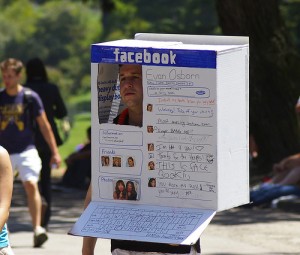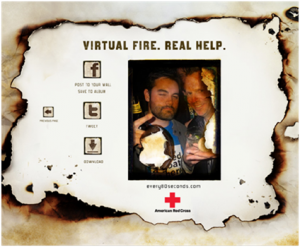Unless you were living under a rock last week, you likely have heard about the big ethical flap that PR firm Burson-Marsteller found itself in after it was outed by USA TODAY for engaging in an attempted smear campaign on behalf of its famous client, Facebook, against Google. “Whisper-Gate” it’s being called.
Long story short: things blew up — dramatically — in one of the most egregious displays of unethical practices our business has seen since Edelman got caught in 2006 for its fake blogging tactics on behalf of Walmart. Let me be clear: B-M’s actions on behalf of Facebook were unethical and improper.
All of the details of this epic tale have already been fleshed out (including new revelations over the weekend from WIRED.com reporter Sam Gustin that B-M was deleting negative posts about the firm on its Facebook wall) in the hundreds of stories that were written last week. Now, it’s time to consider the long-term impact this will have on PR.
Will our profession use this as a teachable moment; an opportunity to reassess our commitment to serving the public interest and being ethical counselors to our clients? Or will we just brush it aside as yet another instance of an ethical lapse taking center stage for a couple of news cycles.
Speaking as someone who manages advocacy for PRSA, a professional organization that strongly advocates for stringent ethical standards in PR, I sincerely hope it is the former. This unfortunate incident has cast a negative shadow upon our profession; one we can ill afford to become the de facto standard operating procedure.
And I believe that, on the whole, the majority of PR professionals are ethical and have the public’s best interest in mind. While B-M certainly made an ethical lapse in this case, we should give the firm some credit for admitting in a statement that “When talking to the media, we need to adhere to strict standards of transparency about clients, and this incident underscores the absolute importance of that principle.”
All that said, I was a little shocked to read in PRWeek UK a quote from Speed Communications MD Steve Earl that, “Smearing is an integral part of PR.”
I won’t try to get too high and mighty about this topic, but I will say this: Smear campaigns and unethical non-disclosure of clients and/or clients’ intentions are most certainly not an integral part of PR. That type of work is unethical and against most recognized global standards of ethics in the profession, including the PRSA Code of Ethics.
Thankfully, Mr. Earl’s assertions were counterbalanced in the same PRWeek article with a more sane statement by Fraser Hardie, senior partner of Blue Rubion, which just so happens to represent Facebook in the UK. Mr. Hardie made it clear that his firm had no knowledge of the B-M smear campaign and he went further by taking the stance that his firm is not willing to cross the line between advocacy and smearing.
This incident was an embarrassment to all parties involved, and more broadly, to the PR profession. It was also unethical. But I’m confident we’ll learn from this and add additional value to our work by keeping the public’s best interest in mind, even if that comes at the expense of our clients’ wishes.
We just need to take statements like Mr. Earl’s with a fine grain of salt to get through the murk.


